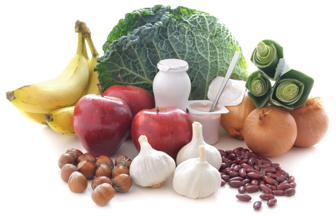 Proper functioning of your immune system plays an important role in the body’s ability to heal, along with the proper wound dressings. It’s very important that you should be fit as possible to heal the damaged tissue, build new tissue and fight off any infections that might come in your way. Eating a variety of highly nutritious foods promotes health by benefiting many different parts of the body. Intake of certain foods can boost your immune system and promote healing.
Proper functioning of your immune system plays an important role in the body’s ability to heal, along with the proper wound dressings. It’s very important that you should be fit as possible to heal the damaged tissue, build new tissue and fight off any infections that might come in your way. Eating a variety of highly nutritious foods promotes health by benefiting many different parts of the body. Intake of certain foods can boost your immune system and promote healing.
- Protein: Protein is part of the body’s defense mechanism and helps the body repair tissue and fight infection. Eat a variety of protein foods that includes seafood, lean meat, poultry, eggs, beans and peas, legumes, avocado, soy products and unsalted nuts and seeds. Protein is composed of the 20 amino acids your body needs for growth and repair, and certain amino acids found in protein have been shown to increase surgical-wound healing and decrease inflammation.
- Vitamin A: This vitamin improves collagen strength, lowers the risk of infection and supports wound healing. It helps regulate the immune system and protects from infections by keeping skin and tissues in the mouth, stomach, intestines and respiratory system healthy. Vitamin A deficiency has been shown to impair antibody function and T-cell activity. You get this immune-boosting vitamin through foods such as sweet potatoes, carrots, spinach, red bell peppers, apricots, eggs, and foods labeled “vitamin A fortified”.
- Vitamin C: This vitamin protects you from infection by stimulating the formation of antibodies and boosting immunity. It is a powerful antioxidant that supports the immune response and helps rebuild collagen. Vitamin C-rich foods include citrus fruits such as oranges, grapefruit, strawberries, and tangerines, red bell pepper, papaya, tomato juice and foods fortified with vitamin C, such as some cereals.
- Vitamin D: This vitamin plays a big part in immune health and is found in milk, salmon and eggs, and sunshine. Research has shown an association with low levels of vitamin D and increased risk of some autoimmune diseases such as multiple sclerosis.
- Vitamin E: This vitamin is an important antioxidant that supports a healthy inflammatory response. Including vitamin E in your diet neutralizes free radicals and may improve immune function. Foods that contain this vitamin are fortified cereals, sunflower seeds, almonds, vegetable oils, hazelnuts and peanut butter.
- B vitamins: These are very important in supporting a healthy immune system as they aid in tissue repair, immune support and cell metabolism. Vitamin B is found in dark leafy greens, whole grains, fish, and chicken.
- Vitamin K: Vitamin K improves healthy blood clotting ability and is necessary for seclusion of areas of infections and injury in the healing process. This vitamin is abundant in dark leafy green vegetables.
- Zinc: This protective antioxidant helps the immune system work properly and can help wounds heal. It is present in lean meat, poultry, seafood, milk, whole grain products, beans, seeds and nuts.
- Antioxidants and phytonutrients: These promote healthy immune function. Your body needs these molecules at the site of infection to help kill unhealthy cells. Many fruits and vegetables provide antioxidants and phytonutrients that help maintain healthy tissue around the sites of infection and support healing. The fruits and vegetables that contain these nutrients are strawberries, cherries, carrots, and tomatoes.
- Water: Whatever you eat, make sure that you drink lots of water throughout the day. Staying hydrated is an important to prevent potentially dangerous post-surgical complications, protect the body against bacteria and microbes, and allows the body to absorb nutrients from the digestive system.
Nutrition plays a meaningful role in how tissue repairs and rebuilds, as well as how the body fights off infection and regains energy. Taking certain foods that include collagen, antioxidants, vitamins and minerals will facilitate faster healing and recovery.